Understanding the Importance of Nutrient-Rich Foods for a Healthy Diet
Maintaining a healthy diet is crucial for our overall well-being, and one of the key factors in achieving this is consuming nutrient-rich foods. Nutrient-rich foods are those that provide a high concentration of essential nutrients, such as vitamins, minerals, and other vital compounds that our bodies need to function properly.
A healthy diet should consist of a variety of nutrient-rich foods from different food groups. These include fruits, vegetables, whole grains, lean proteins, and dairy products. Each food group offers its unique set of nutrients that contribute to our overall health.
The importance of nutrient-rich foods lies in the fact that they provide us with the necessary fuel to support bodily functions and maintain optimal health. Essential nutrients found in these foods play various roles in our bodies – from supporting immune function to promoting proper growth and development.
Vitamins and minerals are two key types of essential nutrients found in nutrient-rich foods. Vitamins help regulate bodily processes and support cellular function. They are involved in energy production, immune system function, bone health, cognitive function, and much more. Minerals are equally important as they play a role in maintaining fluid balance, nerve function, muscle contraction, and bone strength.
By incorporating nutrient-rich foods into our daily diet, we can ensure that we are providing our bodies with the necessary building blocks for good health. These foods not only offer essential nutrients but also tend to be lower in unhealthy fats and added sugars compared to processed or highly refined options.
Understanding the importance of consuming nutrient-rich foods is vital for maintaining a healthy diet. By prioritizing these foods rich in essential nutrients like vitamins and minerals within our meals each day, we can optimize our overall well-being and support optimal bodily functions.
Table of Contents
The Top 10 Nutrient-Rich Foods
- Leafy Greens: The Powerhouse of Nutrients
Leafy greens such as spinach, kale, and collard greens are often referred to as the powerhouse of nutrients. These vibrant and versatile vegetables pack a punch when it comes to nutritional value. From vitamins and minerals to fiber and antioxidants, leafy greens offer a wide array of health benefits that make them an essential part of any balanced diet.
Spinach is one of the most popular leafy greens known for its rich iron content. It is also a great source of vitamin K, vitamin A, folate, and magnesium. Kale, on the other hand, is renowned for its high levels of vitamin C and vitamin K. It also contains antioxidants like beta-carotene and lutein that promote eye health.
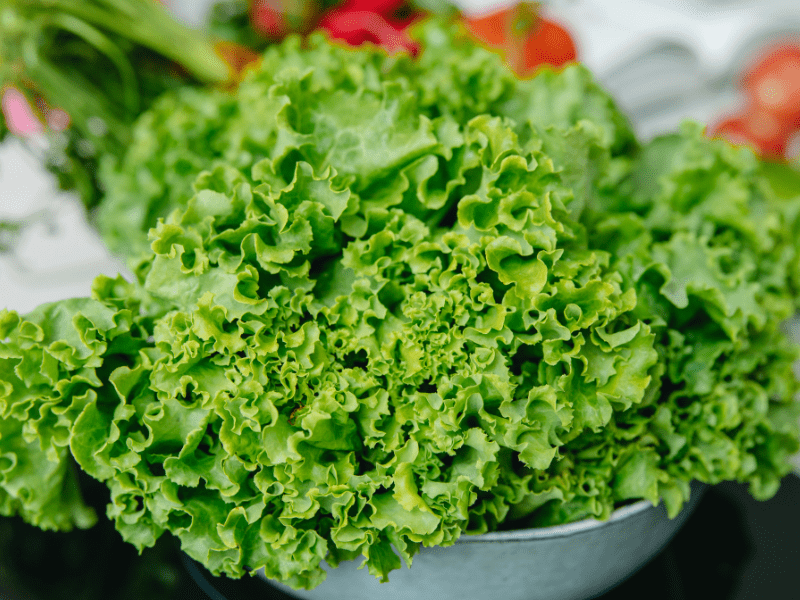
Collard greens are another nutrient-dense option that deserves attention. They are packed with vitamins A, C, E, and K as well as minerals like calcium and manganese. Additionally, they offer dietary fiber which aids in digestion and helps maintain a healthy weight.
Including leafy greens in your diet can provide numerous health benefits. They have been associated with reduced risk of chronic diseases such as heart disease and certain types of cancer. Their high antioxidant content helps protect against cellular damage caused by free radicals.
Leafy greens are not only delicious but also offer an abundance of essential nutrients necessary for optimal health. Whether you enjoy them raw in salads or cooked in various dishes, incorporating spinach, kale, collard greens or other leafy vegetables into your meals can contribute significantly to your overall well-being.
- Berries: Bursting with Antioxidants and Vitamins
Berries are not only delicious but also packed with a wide range of health benefits. They are known for their high antioxidant content, making them an excellent addition to any diet. Blueberries, strawberries, and raspberries are among the most popular and widely consumed berries.
One of the key reasons why berries are considered a nutritional powerhouse is their abundance of antioxidants. Antioxidants help protect our cells from damage caused by harmful molecules called free radicals. The vibrant colors of berries, such as the deep blue of blueberries and bright red of strawberries, are indicative of their antioxidant-rich nature.
Blueberries, in particular, have been hailed as a superfood due to their exceptionally high levels of antioxidants. They contain anthocyanins, which give them their deep blue color and provide numerous health benefits. Research suggests that regular consumption of blueberries may help improve brain function, reduce the risk of heart disease, and even aid in managing diabetes.
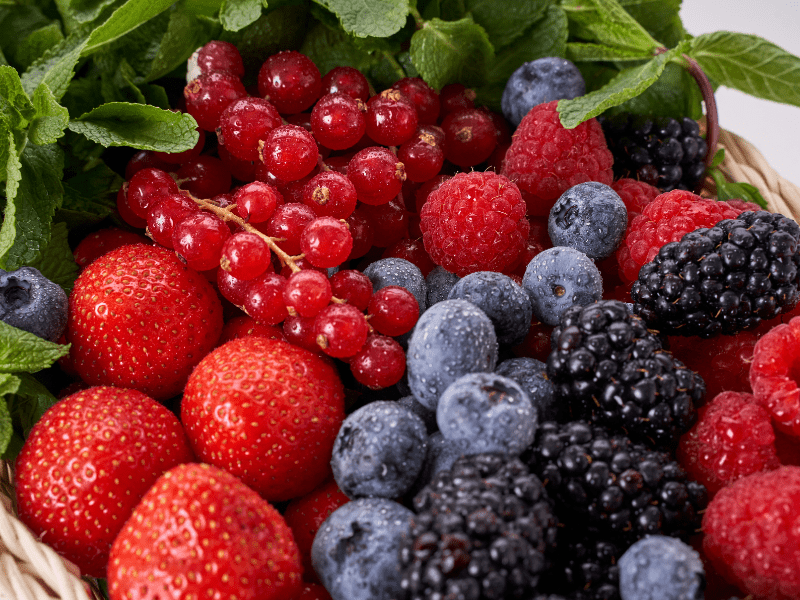
Strawberries are another popular berry known for their antioxidant properties. They contain vitamin C, manganese, folate, and various other beneficial compounds that contribute to overall health and well-being. Additionally, strawberries have been associated with improved heart health and reduced inflammation.
Raspberries offer a unique combination of antioxidants along with dietary fiber and essential vitamins like vitamin C and manganese. These nutrients support immune function while promoting healthy skin and hair.
Incorporating berries into your diet is relatively easy as they can be enjoyed on their own or added to various dishes such as smoothies, salads, or desserts. Whether you choose to include them in your breakfast or enjoy them as a snack throughout the day, incorporating these nutrient-dense fruits can provide you with a flavorful way to boost your antioxidant intake while reaping numerous health benefits.
- Salmon: A Rich Source of Omega-3 Fatty Acids and Protein
Salmon is widely recognized as a nutritional powerhouse, thanks to its abundance of omega-3 fatty acids and high protein content. As one of the richest sources of omega-3 fatty acids, consuming salmon regularly can provide numerous health benefits.
Omega-3 fatty acids are essential fats that play a crucial role in maintaining overall health. They are known for their anti-inflammatory properties and have been linked to a reduced risk of chronic diseases such as heart disease, arthritis, and certain types of cancer. These healthy fats also support brain health and cognitive function, making them particularly important for optimal brain development in children and cognitive maintenance in adults.

In addition to being an excellent source of omega-3s, salmon is also packed with high-quality protein. Protein is essential for building and repairing tissues, supporting muscle growth, and maintaining a healthy immune system. Including protein-rich foods like salmon in your diet can help you feel fuller for longer periods, which may aid in weight management.
Furthermore, salmon is a versatile ingredient that can be prepared in various ways – grilled, baked, or even smoked – offering endless possibilities for incorporating it into your meals. It pairs well with a variety of flavors and ingredients, making it an enjoyable addition to any diet.
Including salmon in your diet provides not only a delicious culinary experience but also valuable nutrients. Its rich content of omega-3 fatty acids and high-quality protein makes it an excellent choice for those seeking to enhance their overall health while enjoying a flavorful meal.
- Greek Yogurt: Packed with Protein and Probiotics for Gut Health
Greek yogurt has gained popularity in recent years due to its numerous health benefits. Packed with protein and probiotics, it is not only a delicious snack but also a great addition to a healthy diet.
Probiotics, which are live bacteria and yeasts that are beneficial for our health, play a crucial role in maintaining gut health. Greek yogurt contains strains of these beneficial bacteria, such as Lactobacillus and Bifidobacterium, which can help restore the natural balance of bacteria in our digestive system.
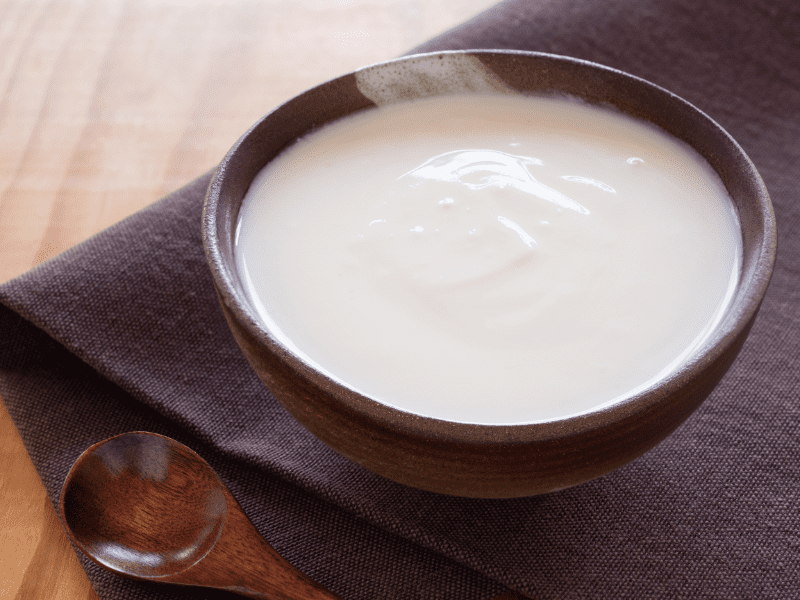
The high protein content of Greek yogurt makes it an excellent choice for those looking to increase their protein intake. Protein is essential for building and repairing tissues, supporting muscle growth, and promoting satiety. Incorporating Greek yogurt into your diet can be particularly beneficial for athletes or individuals following a high-protein diet.
Additionally, Greek yogurt is lower in lactose compared to regular yogurt, making it easier to digest for those who are lactose intolerant. This makes it a suitable option for individuals seeking the benefits of dairy without the discomfort.
Greek yogurt offers a tasty way to boost your protein intake while reaping the benefits of probiotics for gut health. Whether enjoyed on its own or used as an ingredient in recipes, this versatile dairy product can be an excellent addition to your daily routine.
- Quinoa: A Complete Plant-Based Protein Source
Quinoa has gained significant popularity in recent years as a complete plant-based protein source. Packed with numerous health benefits, quinoa offers a versatile and nutritious option for those following a plant-based diet or looking to incorporate more protein into their meals.
One of the key advantages of quinoa is its high protein content. Unlike most grains, quinoa contains all nine essential amino acids, making it a complete protein source. This is particularly beneficial for individuals who follow vegetarian or vegan diets, as it can be challenging to obtain all essential amino acids solely from plant-based sources.
In addition to its protein content, quinoa is also rich in other essential nutrients. It is an excellent source of fiber, which aids in digestion and helps maintain healthy cholesterol levels. Quinoa is also packed with vitamins and minerals such as magnesium, iron, and zinc.
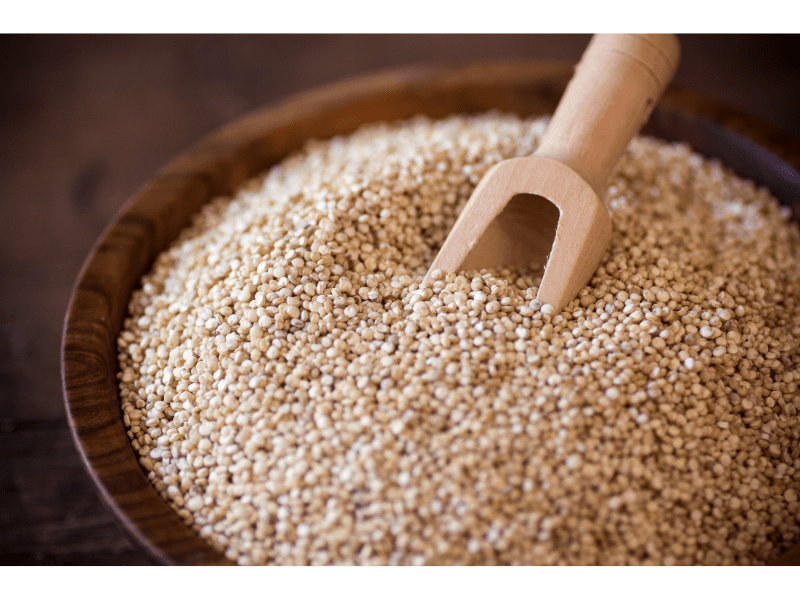
Another advantage of quinoa is its versatility in cooking. It can be used in various dishes ranging from salads and stir-fries to soups and baked goods. Its mild nutty flavor makes it a great base for both savory and sweet recipes.
For those looking to incorporate more quinoa into their diet, there are countless delicious recipes available. From hearty quinoa bowls topped with roasted vegetables to flavorful quinoa salads dressed with tangy vinaigrettes, the options are endless. Quinoa can also be used as a substitute for rice or pasta in many traditional dishes.
Quinoa stands out as an exceptional plant-based protein source due to its complete amino acid profile and numerous health benefits. Whether you’re following a vegetarian or vegan diet or simply seeking nutritious meal options, incorporating quinoa into your meals can provide you with the necessary nutrients while adding variety and flavor to your plate
- Nuts and Seeds: Nutrient-Rich Snacks to Boost Energy Levels
Nuts and seeds are not only delicious but also pack a powerful punch when it comes to boosting energy levels. These nutrient-rich snacks are a great choice for anyone looking for a healthy and convenient option to fuel their day.
Nuts, such as almonds, walnuts, and cashews, are rich in healthy fats, protein, and fiber. These nutrients provide sustained energy and help keep you feeling full for longer periods of time. Additionally, they contain essential vitamins and minerals like vitamin E, magnesium, and potassium that support overall health.
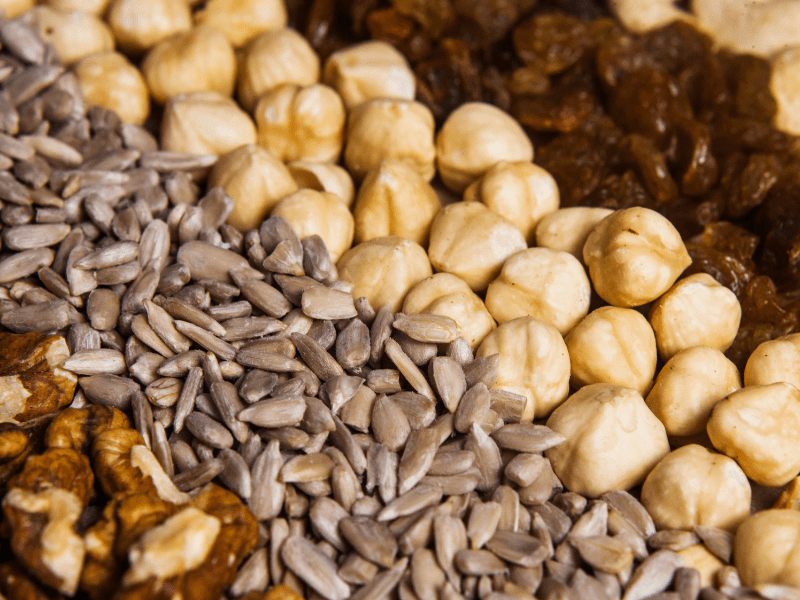
Seeds like chia seeds, flaxseeds, and pumpkin seeds are also excellent choices for energy-boosting snacks. They are loaded with omega-3 fatty acids, fiber, protein, and various antioxidants. These nutrients can help improve brain function and promote heart health.
It’s important to note that while nuts and seeds offer numerous benefits as energy-boosting foods, individuals with nut allergies should exercise caution or avoid them altogether. For those with allergies or dietary restrictions, there are alternative options available such as sunflower seeds or roasted chickpeas that can still provide a satisfying snack without the risk of triggering an allergic reaction.
Incorporating nuts and seeds into your snacking routine is an easy way to enhance your energy levels while enjoying a tasty treat. Whether you sprinkle them on top of yogurt or salads or simply enjoy them on their own as a quick snack on the go – these nutrient-dense options will keep you fueled throughout the day.
- Sweet Potatoes: A Nutrient-Dense Root Vegetable
Sweet potatoes are not only delicious, but they also pack a powerful nutritional punch. As a nutrient-dense root vegetable, sweet potatoes are rich in vitamins, minerals, fiber, and healthy carbohydrates.
One of the standout features of sweet potatoes is their high vitamin content. They are an excellent source of vitamin A, which is important for maintaining healthy vision and supporting immune function. Additionally, sweet potatoes provide significant amounts of vitamin C, which plays a crucial role in collagen production and acts as an antioxidant to protect cells from damage.
In terms of minerals, sweet potatoes are particularly rich in potassium. This essential mineral helps regulate blood pressure and supports proper muscle and nerve function. Sweet potatoes also contain other important minerals such as manganese and copper that contribute to various physiological processes in the body.
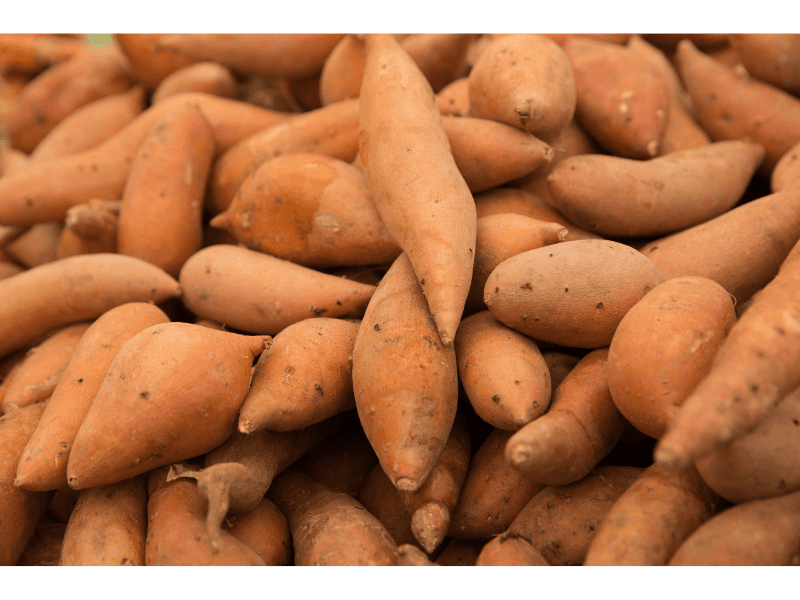
Fiber is another key component found in sweet potatoes. It aids digestion by promoting regular bowel movements and can help control blood sugar levels by slowing down the absorption of sugars into the bloodstream. Furthermore, the fiber content contributes to a feeling of fullness after consuming sweet potatoes, making them a satisfying addition to any meal.
Lastly, sweet potatoes offer a source of healthy carbohydrates that provide sustained energy throughout the day. Unlike refined carbohydrates that can cause spikes in blood sugar levels, the complex carbohydrates found in sweet potatoes release energy slowly over time.
Incorporating sweet potatoes into your diet can be a delicious way to boost your intake of essential vitamins, minerals, fiber, and healthy carbohydrates. Whether baked as fries or mashed as a side dish, these nutrient-dense root vegetables offer numerous health benefits that make them worth including on your plate.
- Beans and Legumes: Protein and Fiber-Rich Plant-Based Foods
Beans and legumes are highly nutritious plant-based foods that are rich in both protein and dietary fiber. They have been a staple in diets around the world for centuries, providing essential nutrients and contributing to overall health and well-being.
When it comes to protein, beans and legumes are an excellent choice for those following a plant-based or vegetarian diet. They offer a substantial amount of protein, making them a valuable alternative to animal-based sources. This is particularly important as protein is essential for the growth, repair, and maintenance of body tissues.
In addition to their protein content, beans and legumes are also packed with dietary fiber. Fiber plays a crucial role in digestion by promoting regular bowel movements and preventing constipation. It also helps in maintaining healthy cholesterol levels and controlling blood sugar levels.
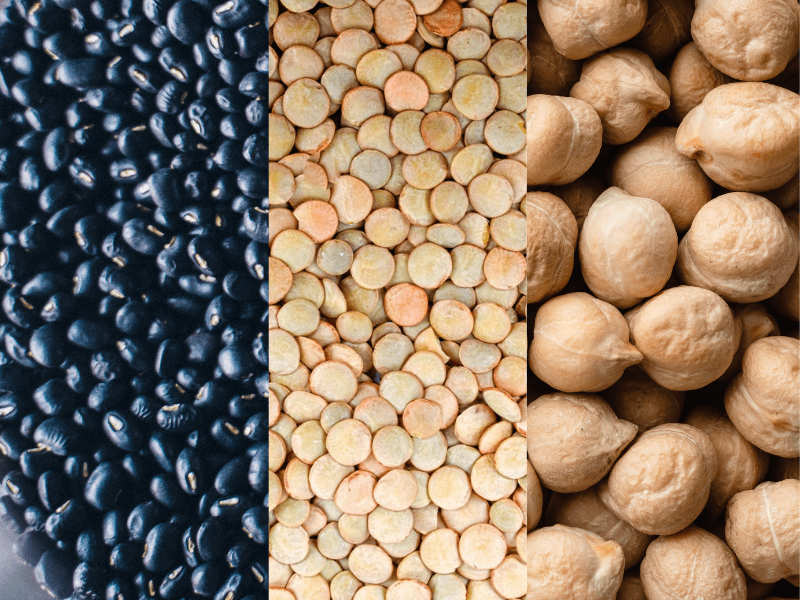
Including beans and legumes in your diet can have numerous health benefits. They have been linked to reduced risk of heart disease, diabetes, obesity, and certain types of cancer. Moreover, their high fiber content can contribute to weight management by promoting feelings of fullness.
There is a wide variety of beans and legumes available, including black beans, chickpeas (garbanzo beans), lentils, kidney beans, pinto beans, and many more. These versatile ingredients can be incorporated into various dishes such as soups, stews, salads, dips or even used as a meat substitute in vegetarian recipes.
Whether you’re looking to enhance your plant-based protein intake or increase your dietary fiber intake for better digestion – incorporating more beans and legumes into your meals is an excellent way to boost your nutrition while enjoying delicious flavors.
- Eggs: A Complete Protein Source with Essential Vitamins and Minerals
Eggs have long been recognized as a complete protein source, providing all the essential amino acids that our bodies need. Not only are they a convenient and versatile food, but they also pack a nutritional punch with an array of essential vitamins and minerals.
As a complete protein source, eggs contain all nine essential amino acids that our bodies cannot produce on their own. These amino acids are vital for building and repairing tissues, supporting immune function, and promoting overall growth and development. This makes eggs an excellent choice for individuals looking to meet their protein needs, whether they follow a vegetarian or omnivorous diet.

In addition to being a rich source of high-quality protein, eggs are also packed with essential nutrients. They are an excellent source of vitamin B12, which is crucial for the formation of red blood cells and proper nerve function. Eggs also provide significant amounts of vitamin D, which plays a role in bone health and immune function.
Furthermore, eggs contain important minerals such as iron, zinc, selenium, and phosphorus. Iron is necessary for oxygen transport in the body while zinc supports immune function and wound healing. Selenium acts as an antioxidant to protect cells from damage while phosphorus is essential for healthy bones and teeth.
Incorporating eggs into your diet can be beneficial in meeting your daily protein requirements while providing you with a wide range of essential vitamins and minerals. Whether enjoyed scrambled for breakfast or added to salads or stir-fries for lunch or dinner, eggs offer both taste and nutrition in one package.
- Dark Chocolate: A Decadent Treat Packed with Antioxidants
Dark chocolate is not only a delicious treat but also a powerhouse of antioxidants. When consumed in moderation, it can provide numerous health benefits due to its high cocoa percentage.
One of the key benefits of dark chocolate is its rich antioxidant content. Antioxidants are compounds that help protect our cells from damage caused by free radicals. Dark chocolate contains a variety of antioxidants, including flavonoids and polyphenols, which have been linked to reducing inflammation and lowering the risk of chronic diseases such as heart disease and certain types of cancer.
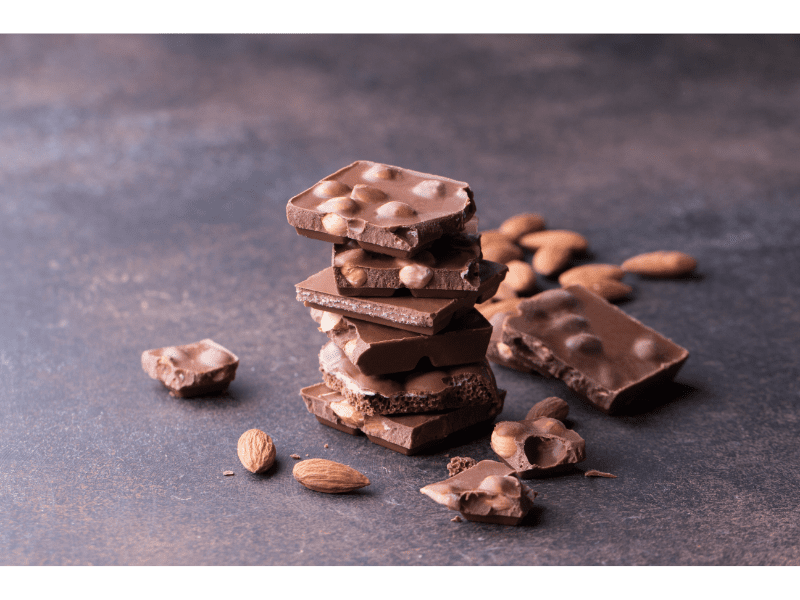
The cocoa percentage in dark chocolate plays a crucial role in determining its antioxidant content. Generally, the higher the cocoa percentage, the more antioxidants it contains. It is recommended to choose dark chocolate with at least 70% cocoa content to reap maximum health benefits.
However, it’s important to consume dark chocolate in moderation. While it offers health benefits, it is still high in calories and fat. Overindulging can lead to weight gain and other health issues. It’s best to enjoy a small portion as an occasional treat rather than consuming large quantities on a regular basis.
The dark chocolate can be considered a decadent treat packed with antioxidants. Its consumption in moderation can provide various health benefits due to its antioxidant-rich nature and high cocoa percentage. So go ahead and savor that piece of dark chocolate guilt-free!
Incorporating nutrient-rich foods into your diet is crucial for maintaining optimal health. By including a variety of these foods in your daily meals, you can ensure that your body receives the essential vitamins, minerals, and antioxidants it needs to function at its best.
Nutrient-rich foods such as fruits, vegetables, whole grains, lean proteins, and healthy fats provide a wide range of benefits. They support immune function, promote heart health, boost energy levels, aid digestion, and contribute to overall wellbeing.
To make the most out of these foods, it’s important to prioritize diversity and balance in your diet. Aim to include a colorful array of fruits and vegetables to benefit from their unique nutrients. Opt for whole grains like quinoa or brown rice instead of refined grains for added fiber and nutrients. Choose lean proteins such as chicken breast or tofu over processed meats to support muscle growth and repair.
Additionally, don’t forget about healthy fats found in sources like avocados, nuts, and olive oil. These fats are essential for brain health and help absorb fat-soluble vitamins.
By incorporating nutrient-rich foods into your daily meals and making them a staple part of your diet, you can take significant steps towards achieving optimal health and wellbeing. Remember that small changes can lead to big results when it comes to nourishing your body with the right nutrients.
Also Read: 10 Best Foods For Weight Loss: What To Eat To Lose Weight

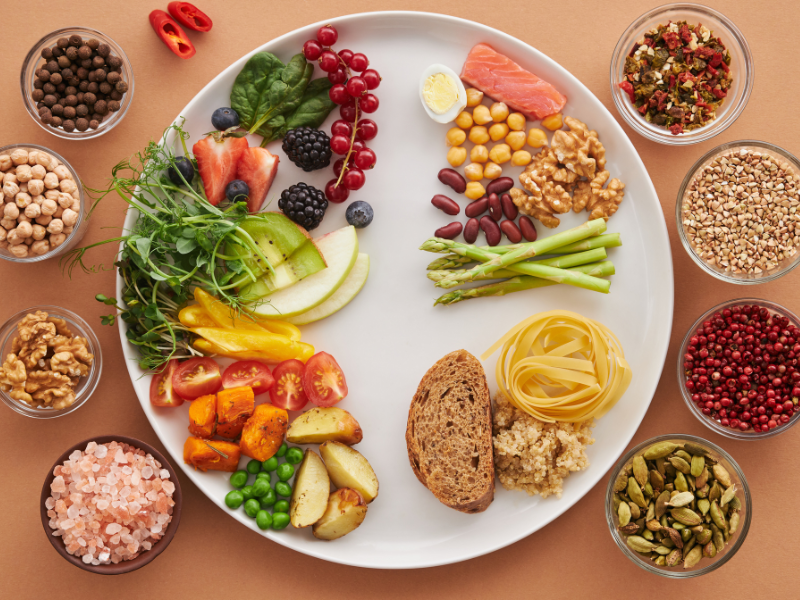
3 thoughts on “The Top 10 Nutrient-Rich Foods to Include in Your Diet for Optimal Health”